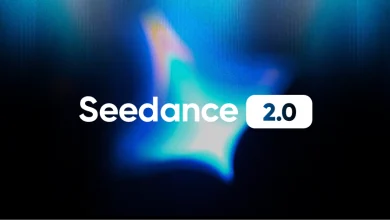
Artificial Intelligence (AI) is no longer a vision of the future; it’s reshaping business today. Companies are actively integrating it into workflows and processes to accelerate decisions, optimise operations, and secure a lasting competitive edge.
At the same time, decision-makers are navigating the practical realities of implementation. This includes overcoming internal resistance, aligning teams, managing expectations around the speed and scale of measurable results, while also addressing ethical, compliance, and security considerations.
Smarter Machines Require Smarter Minds
As AI gains strength, one fact is becoming increasingly clear: the smarter the technology, the more it requires human direction and strategic judgement. This is not a battle between man and machine – it is about cooperation. AI does not replace the human thought process; it refines it. At the same time, it demands sharper cognitive engagement and thoughtful control.
Traditionally, cognitive workplace tasks have followed a familiar pattern:
- Reproduction (recalling facts)
- Analysis (interpreting data)
- Reflection (creative application and consideration)
AI has fundamentally shifted this process.
AI now performs much of what once demanded human effort: retrieving information and structuring complex data. It accelerates factual recall and surfaces connections at a speed and scale no team could match. What remains is not execution, but direction – a shift from processing to purpose.
As information handling and pattern recognition shifts to machines, the centre of gravity moves to the third stage: reflection. This is where leadership becomes indispensable – to question, prioritise, and steer. It’s no longer just about knowing or understanding; it’s about making sense of AI-generated insights through the lens of purpose, values, and goals. This requires critical thinking, sound judgement, and the ability to translate information into meaningful action.
As AI Accelerates, Effective Leadership Requires Reflection
For AI to truly become part of an organisation’s fabric, it must be completely embedded. This starts with effective leadership. When AI thinks faster, leaders must think deeper.
Business leaders must foster a culture of curiosity, adaptability, and continuous learning, seeing AI as an enabler rather than a threat. They must also consider the evolving relationship between AI and employees. Unlike traditional software, AI sits at the intersection of people and technology, requiring a shift in both mindset and process.
Unlocking the full potential of AI means equipping employees to work differently – psychologically and operationally. This calls for more than just technical know-how. They need support in developing advanced cognitive and strategic skills. These include analytical sharpness, mental agility, contextual judgement, and the ability to extract what truly matters from complex situations.
These are essential for understanding AI principles, assessing its outputs, and translating them into informed, context-driven business decisions.
AI Shapes How We Work, Humans Shape What We Achieve
Recognising the need to “develop human skills” is no longer enough. What matters now is execution. Companies must act with precision and intent. Below are example measures that illustrate how critical human capabilities like judgement, adaptability, and reasoning can be trained in practice. These are not checklists; they are starting points for real capability-building in an AI-driven world.
Critical Thinking
- Case-based discussion formats focused on ambiguous AI-generated outputs
- Exercises comparing human vs. AI reasoning to identify flawed assumptions
- Structured argumentation training using real business scenarios
Mental Agility
- Simulation exercises with shifting AI-generated data and evolving constraints
- Rapid decision-making drills under incomplete information
- Cross-functional roles in AI-related projects to foster flexible thinking
Discernment in Complexity
- Hands-on sessions interpreting multi-source AI results with conflicting signals
- Scenario planning workshops to link AI insights to business goals
- Reflection modules that train to separate noise from signal in AI outputs
When answers come at the speed of a click, the real differentiator is the quality of the question – and the ability to reflect on the outcome. This is not a soft skill; it is the human edge. In a world racing toward automation, the ability to think critically, frame sharp questions, and challenge the obvious is what will define value, relevance and leadership.




